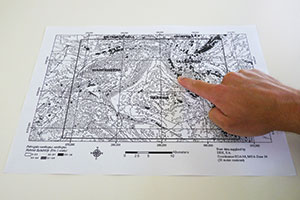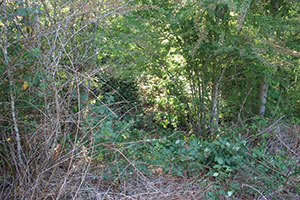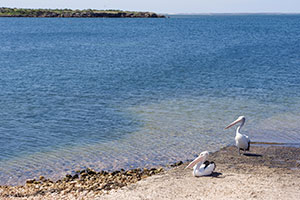Conceptual, spatial and ecological modelling

With our specialised modelling services, EcoKnowledge can take a leading role in optimising broad-scale restoration planning.
Modelling and data capture
EcoKnowledge offers a comprehensive ecological modelling service that can guide planning and enhance conservation and natural resource management outcomes. With our diverse modelling expertise we are able to help clients formulate the problem they wish to solve before developing the most suitable modelling and data-capture approaches.
Habitat and population models
EcoKnowledge uses specialised habitat and population modelling techniques employing stochastic dynamic programming, simulated annealing, non-linear, individual-based and spatially-explicit approaches. To explore the best management responses to landscape stressors, population and process models need to consider environmental stochasticity, demographic stochasticity and climate change. To this end, we are able to develop spatially-explicit population growth models, animal movement models, wildlife health models and population viability models. We also employ Bayesian statistics and Markov chains to integrate a wide range of information and bring in bootstrapping and jack-knifing to test for uncertainty.
Conceptual models
Conceptual models assist in the development and management of monitoring programs. They depict an ecological system by showing physical and biological attributes, as well as describing relationships between drivers and stressors. Conceptual models are versatile and can be applied to all biological systems, from organisms to ecosystems. The various types include:
- conceptual diagrams that are used to convey broad concepts to a wide audience
- control models that provide a depiction of system components and their relationships results chains that depict the hypothesised relationships between actions and desired impacts
- state-and-transition models that depict alternative states and the thresholds and paths between them.
Specialty services
EcoKnowledge’s service delivery includes:
- GIS and computer modelling
- conceptual modelling
- mark-recapture modelling
- spatially-explicit population viability analysis
- spatially-explicit habitat modelling (from simple to complex non-linear modelling approaches), including:
- multivariate adaptive regression splines
- classification trees
- regression trees
- generalised additive models
- facilitating the transition from conceptual models to mathematical models
- provision of optimisation and decision-support tools.
Demonstrated expertise
Previous EcoKnowledge projects include:
- population modelling of threatened species, including the Yellow-footed Rock-wallaby and Tammar Wallaby
- the development and application of a restoration planning tool, Optimal Restoration of Altered Habitats (OPRAH), in the Mount Lofty Ranges
- habitat modelling of a wide range of plant and bird species in the Flinders Ranges, Riverland and Mount Lofty Ranges
- weed modelling to determine optimal removal strategies in the Flinders Ranges and Fleurieu Peninsula
- conceptual models for:
- threatened arid-zone plant species
- threatened vegetation communities in the arid zone and Mount Lofty Ranges
- aquatic species and communities of the Lower River Murray
- aquatic ecosystems such as the Coorong, Lakes Alexandrina and Albert Wetland of International Importance.




